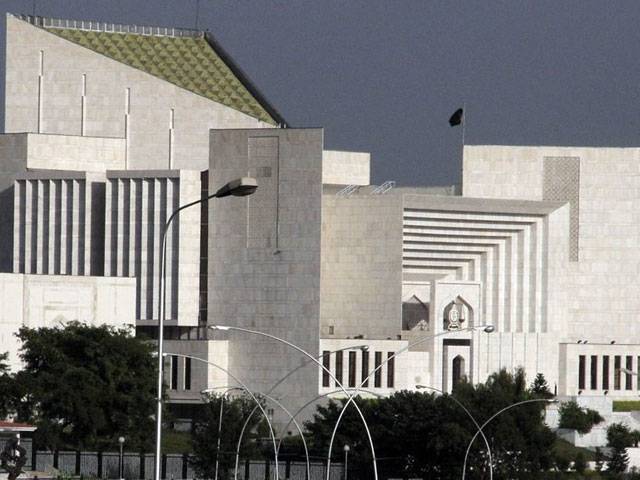ISLAMABAD - The Supreme Court on Friday ordered to carry out the DNA test to ascertain the identity of the parents of the 10-year-old maid— who was allegedly tortured by her employers.
While hearing a suo motu case, a two-member Supreme Court bench headed by Chief Justice Mian Saqib Nisar issued the orders after two women— Kausar Bibi and Farzanz—appeared before the apex court each claiming the girl was their child.
The chief justice had taken the suo motu notice of the case after the torture case was widely reported in the media, and later affidavits were submitted to the court earlier this week that the parents of the minor girl, Tayyaba, “forgave” her alleged tormentors— Additional Sessions Judge Raja Khurram Ali Khan and his wife Maheen Zafar.
The location of the child was still unknown, which further added to the confusion.
While referring to the affidavits, Justice Nisar observed: “No compromise could be made in matters, which are of fundamental rights and nobody would be allowed to violate the rights of the minors.” “We are the parents of all Pakistani children and court has used its parental jurisdiction in this case,” he said.
"Even parents cannot deny the children their fundamental rights," the chief justice observed. He questioned how did they reach a settlement on the torture against their child?
In the affidavits, the girl's father Mohammad Azam, her mother Nusrat Bibi and her aunt Pathani Bibi had stated, “We reached a settlement with Raja Khurram Ali Khan and his wife Maheen Zafar with our free will and hence forgiving them unconditionally”.
The court directed Islamabad Police DIG to form an investigation team and complete the investigation within three days and produce the minor girl and her real parents at the next date of hearing on January 11.
Earlier, advocate Tariq Mehmood appearing on the behalf of Human Rights Commission of Pakistan (HRCP) informed the court that Tayyaba was presented before Potohar Nisha Ishtiyaq Assistant Commissioner (AC) on December 29, who had recorded her statement and sent her to Shaheed Benazir Bhutto Crisis Centre.
The apex court also ordered the Potohar AC to appear before the court at the next hearing along with the entire record.
The HRCP counsel requested the court to also summon provincial advocate generals for further legislation on the issue. He said that there was no law in the country regarding protection of minors, adding that the Punjab government has recently passed a law regarding the child labour.
On this, Justice Saqib directed the HRCP counsel to amend his petition and include the issue of legislation so that they could deal it accordingly.
The judge's wife, Maheen Zafar, also appeared before the court and contended that she received the court notice late in the night and sought time to engage a counsel, which was accepted by the bench.
The court also admitted two other human rights petitions filed under Article 184(3) of the constitution moved by HRCP and Farzana Bari, a member of civil society, and ordered the office to fix the petitions for hearing along with the main case.
The chief justice said that if any other citizen or body wants to assist the court on the issue of minor kids the court would welcome.
The apex court also directed Advocate General Islamabad Mian Abdul Rauf to ensure the early medical examination of the minor, adding that all the available tools should be used for carrying out tests to bring the facts before the nation.
Meanwhile, a new development also surfaced that Tayyaba’s real name was Sana, the daughter of Nawaz. Sana went missing in 2014 from her home and then picked up by a gang that supplied housemaids in return for money.






